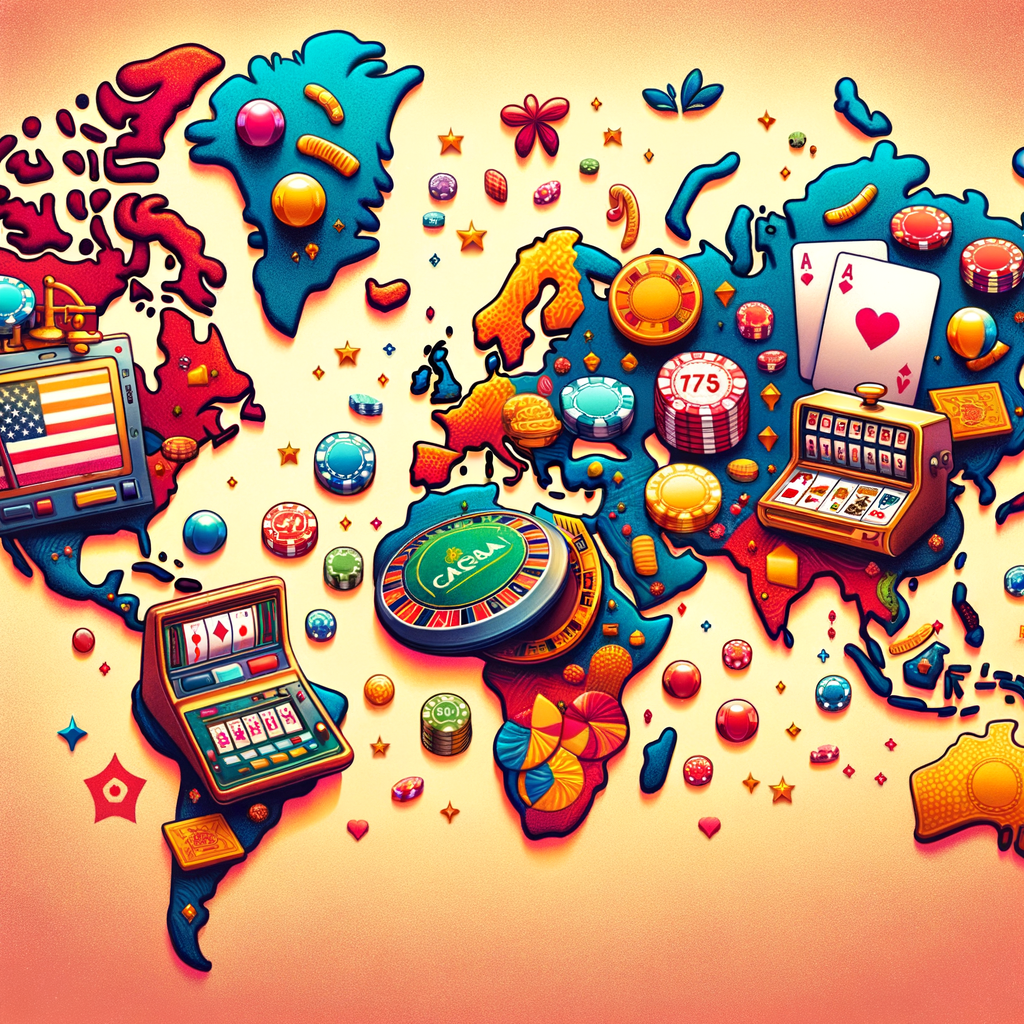Understanding AI’s Role in Gaming and Casinos
Artificial Intelligence (AI) has become an integral part of various industries, and the casino sector is no exception. In recent years, AI technologies have been increasingly employed to enhance the gaming experience, personalize services, and improve operational efficiencies. AI systems analyze vast amounts of data generated by player interactions, allowing casinos to understand patterns in player behavior and preferences. This data-driven approach not only helps in marketing strategies but also in enhancing game design and dynamics.
The use of AI in casinos extends to real-time decision-making processes. For example, AI can optimize gaming operations by analyzing customer foot traffic, predicting peak hours, and managing staff schedules accordingly. Additionally, AI systems can monitor gameplay and detect irregularities, such as cheating or fraud, providing a layer of security that is vital for maintaining trust in the gaming environment.
Moreover, AI's role is not limited to operational aspects; it also plays a significant part in game development. Game developers utilize AI to create sophisticated algorithms that can generate random outcomes in slot machines or card games, ensuring fairness and unpredictability. The incorporation of AI enhances the excitement of gaming experiences while maintaining compliance with regulatory standards.
In summary, AI is reshaping the gaming landscape by offering insights into player behavior, optimizing operational practices, and improving the design and fairness of casino games. However, the pressing question remains: can AI predict the outcomes of these games?
The Science Behind Predictive Algorithms in Gambling
Predictive algorithms are at the heart of AI's potential to forecast outcomes in casino games. These algorithms utilize historical data to identify patterns and trends that can inform future predictions. By analyzing vast datasets—ranging from player behavior to game mechanics—AI can develop models that attempt to forecast game outcomes. Machine learning, a subset of AI, allows these models to improve their accuracy over time as they process more data.
In casino games like blackjack or poker, predictive models can analyze past hands to determine probabilities of winning based on card distributions and player actions. For instance, an AI algorithm may calculate the likelihood of certain cards being dealt based on previously known cards. This kind of predictive analysis is valuable in decision-making processes, potentially giving players an edge during gameplay.
However, the effectiveness of these predictive algorithms varies among different games. In games based on pure chance, such as slots or roulette, predicting outcomes becomes significantly more challenging. The randomness inherent in these games makes it difficult for AI to generate reliable forecasts. Thus, while predictions can be made, they often come with a significant margin of error.
Overall, while AI has the capability to analyze data and provide insights that might influence decision-making in games with an element of skill, its predictive power is limited when it comes to games of pure chance.
Limitations of AI in Predicting Casino Game Outcomes
Despite the advancements in AI and machine learning technologies, there are notable limitations when it comes to predicting casino game outcomes. One critical limitation is the inherent randomness associated with many casino games. In games such as roulette or slot machines, outcomes are determined by random number generators (RNGs), which operate on principles of probability rather than predictability. This randomness renders any attempts at prediction largely futile.
Another limitation lies in the dynamic nature of the gaming environment. Casinos constantly implement changes to games, rules, and payout structures, which can quickly render predictive models obsolete. AI systems depend heavily on historical data to make forecasts, and any significant changes in game design or player behavior can disrupt the patterns that the AI relies upon.
Furthermore, ethical and legal constraints play a significant role in limiting the application of AI in predicting game outcomes. Many jurisdictions have regulations against using devices or software to gain an unfair advantage in gambling. This means that while AI can analyze data for insights, its use in actual gaming scenarios is tightly regulated, further complicating its predictive capabilities.
In conclusion, while AI has the potential to enhance gaming experiences and inform decision-making, its ability to predict specific game outcomes is limited by randomness, environmental changes, and legal restrictions.
Comparing AI Predictions to Traditional Betting Strategies
When comparing AI predictions to traditional betting strategies, there are several key differences to consider. Traditional betting strategies often rely on the gambler's intuition, experience, and understanding of the game. Players may develop rules of thumb or use heuristics based on past experiences to guide their betting decisions. These strategies can be effective, especially in skill-based games like poker, where psychological factors come into play.
In contrast, AI uses data-driven approaches to make predictions. By analyzing patterns from extensive datasets, AI can offer insights that traditional strategies may overlook. For instance, an AI model might identify a statistical anomaly based on player betting habits or game outcomes that could inform future bets. This data-centric approach can provide a more objective perspective, reducing the impact of cognitive biases that often influence human decision-making.
However, the accuracy of AI predictions can vary significantly, especially in games of chance. Traditional strategies may still hold value in certain contexts where human intuition can navigate the complexities and nuances of gameplay. For instance, in poker, reading opponents and understanding their behaviors can be crucial, and these aspects are often beyond the reach of AI predictions.
Ultimately, both AI predictions and traditional betting strategies have their merits and drawbacks. While AI can provide data-driven insights, traditional strategies remain relevant, particularly in skill-based games where player psychology is a significant factor.
| Aspect | AI Predictions | Traditional Betting Strategies |
|---|---|---|
| Basis of Decision-Making | Data-driven analysis | Intuition and experience |
| Application Scope | Primarily in data-rich environments | Versatile across various games |
| Accuracy | Variable; limited in chance games | May depend on player skill |
| Adaptability | Needs regular updates | Can evolve with player experience |
Ethical Implications of AI in Gambling Industries
The integration of AI into the gambling industry brings forth several ethical considerations. One of the primary concerns is the potential for AI-driven systems to manipulate outcomes or influence player behavior unfairly. If players discover that AI algorithms can predict or influence game outcomes, it could undermine their trust in the fairness of the games. This concern raises questions about transparency and accountability in AI systems used in casinos.
Additionally, the use of AI for targeted marketing raises ethical issues related to player privacy. Casinos can leverage AI to analyze customer data and behavioral patterns for marketing purposes, potentially leading to aggressive advertising strategies that target vulnerable players. This practice could contribute to problem gambling and addiction, prompting calls for stricter regulations on how player data is utilized.
Another ethical concern arises from the potential for AI to perpetuate biases. If the data used to train AI models is biased or unrepresentative, the predictions made by these systems can reinforce existing inequalities. For instance, if historical data reflects a particular demographic's behavior disproportionately, AI might unfairly target or exclude certain groups in its predictions or marketing strategies.
In summary, the ethical implications of AI in gambling necessitate careful consideration and regulation to ensure that player rights are protected, fairness is maintained, and responsible gambling practices are upheld.
Future Trends: AI’s Evolving Role in Casino Games
Looking ahead, the role of AI in casino games is expected to evolve significantly. As technology advances, we may see AI systems becoming more sophisticated in their data analysis capabilities. This could lead to more personalized gaming experiences, where AI tailors game recommendations and promotions based on individual player preferences and behaviors. Such personalization could enhance customer loyalty and improve player satisfaction.
Moreover, as AI continues to develop, we may witness its integration into augmented reality (AR) and virtual reality (VR) gaming environments. This fusion could create immersive gaming experiences that incorporate real-time data analysis and adapt gameplay based on player interactions. AI could enhance the realism of these experiences, making them more engaging and enjoyable.
Additionally, advancements in natural language processing (NLP) could lead to the development of AI-powered virtual dealers and gaming assistants. These systems could provide players with real-time guidance, answer questions, and offer personalized suggestions, enriching the overall gaming experience. Such innovations could bridge the gap between traditional and digital gaming environments.
In conclusion, the future of AI in casinos is promising, with the potential for enhanced personalization, immersive experiences, and intelligent gaming assistants. However, it will be essential to balance these advancements with ethical considerations and regulations to ensure a fair and responsible gaming environment.
Q&A Section
Q: Can AI accurately predict the outcomes of all casino games?
A: No, AI predictions are limited in games of pure chance, such as slots and roulette, due to their inherent randomness. It is more effective in games with skill elements, like poker.
Q: How does AI improve player experience in casinos?
A: AI analyzes player behavior to offer personalized game recommendations, optimize marketing strategies, and enhance game design, leading to a more engaging experience.
Q: Are there ethical concerns regarding AI in the gambling industry?
A: Yes, concerns include manipulation of outcomes, player privacy issues, and potential biases in AI algorithms.
Q: Will AI replace traditional betting strategies in the future?
A: While AI may complement traditional strategies by providing data-driven insights, human intuition and experience will likely remain valuable, especially in skill-based games.



